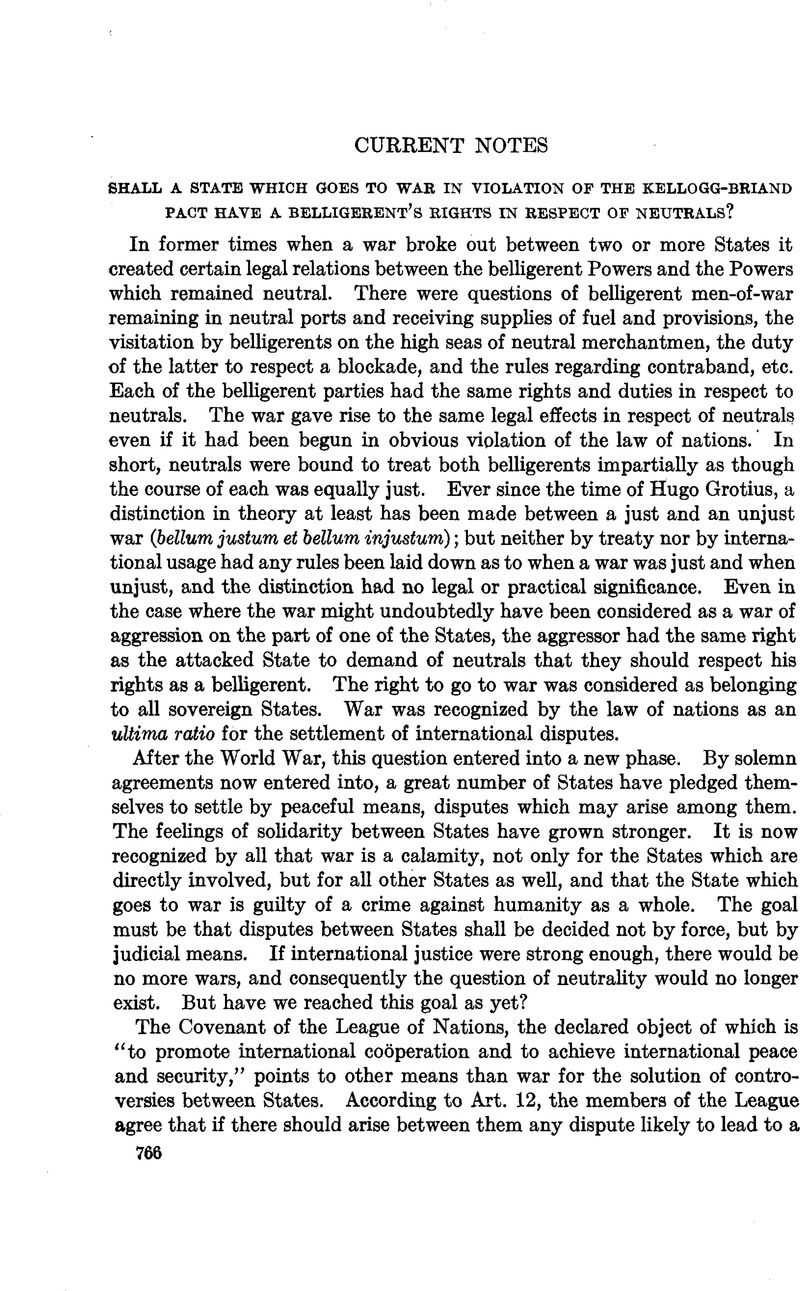Article contents
Shall A State Which Goes to War in Violation of the Kellogg-Briand Pact have a Belligerent's Rights in Respect of Neutrals?
Published online by Cambridge University Press: 04 May 2017
Abstract

- Type
- Current Notes
- Information
- Copyright
- Copyright © American Society of International Law 1930
References
1 See Gamer, J. W. : “ The Freedom of the Seas” in this Journal, 1929 (Vol. 23), p. 362 Google Scholar et seq. (especially p. 367). Professor Gamer refers to a suggestion of Sir John Fischer Williams “ that a distinction should be recognized between the rights of neutrals in what he denominates ‘ public’ wars, that is, wars carried on by or under the authority of a collective group of States, for example, the League of Nations, against an aggressor, or for the protection of international covenants, and their rights during the existence of ‘private’ wars, that is, wars begun and waged by individual States on their own account and for the advancement of purely national interests.”
2 See Memorandum on the Signature by His Majesty's Government in the United Kingdom of the Optional Clause of the Statute of the Permanent Court of International Justice,British White Papers, Miscellaneous No. 12, 1929.
- 1
- Cited by




